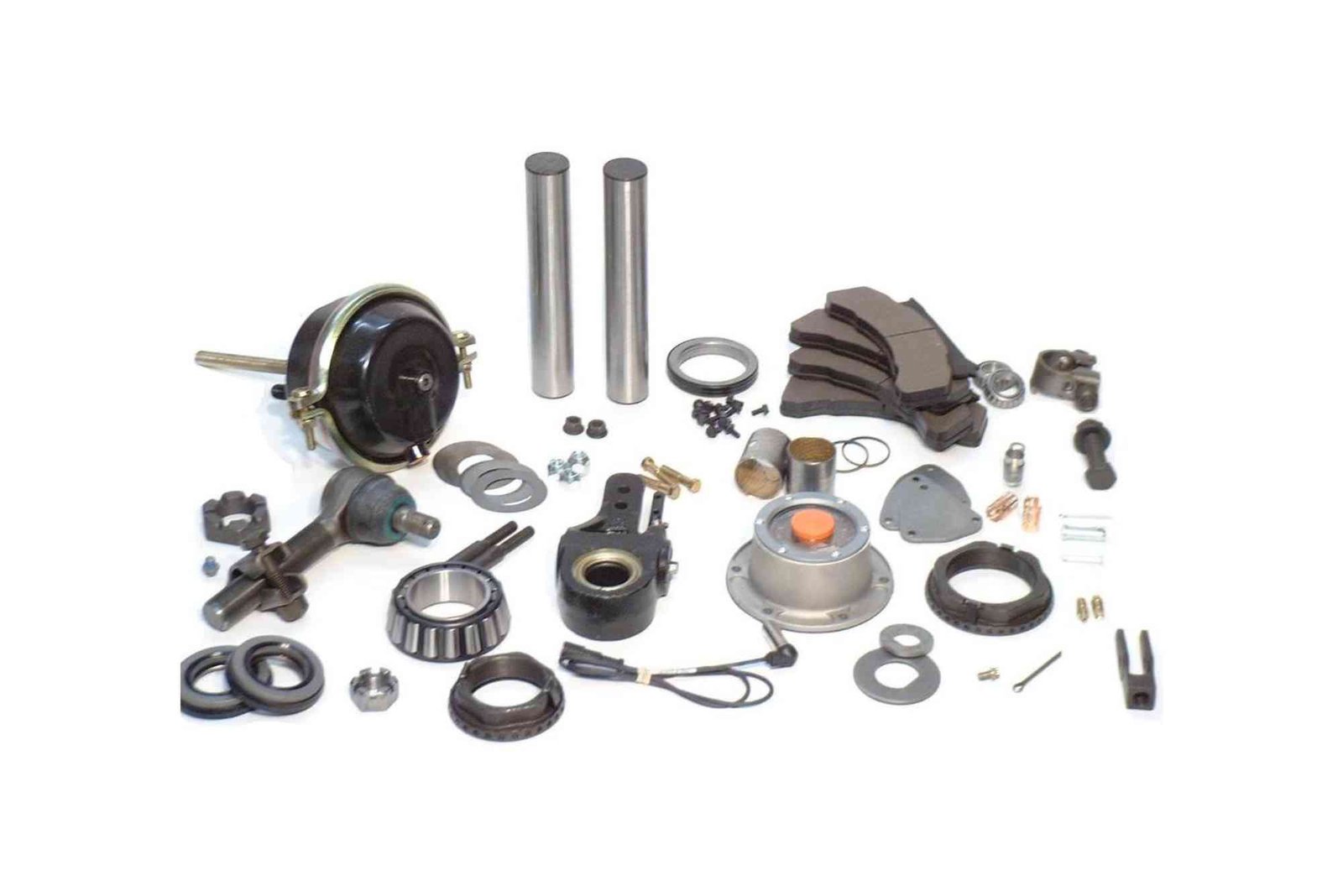Introduction
Importing spare parts from China has become a strategic move for businesses seeking quality components at competitive prices. However, the process involves several critical steps to ensure a smooth, cost-effective, and legally compliant transaction. Understanding the market, supplier reliability, shipping options, and quality control measures can save both time and money. This guide provides practical tips to help you navigate the complexities of importing spare parts from China while avoiding common pitfalls. Whether you are a small business or a large enterprise, these tips will help you streamline your operations and make informed decisions.
Understanding the Chinese Spare Parts Market
Market Research and Supplier Selection
Before placing an order, it is crucial to conduct comprehensive market research. Chinese suppliers vary significantly in terms of quality, pricing, and reliability. Platforms like Alibaba, Made-in-China, and Global Sources provide access to a wide range of suppliers. Verify each supplier’s credentials, certifications, and trade history to ensure legitimacy. Look for suppliers with positive reviews, verified business licenses, and consistent product quality.
Product Specifications and Compatibility
Understanding your product specifications is key to avoiding mismatches. Clearly define part numbers, dimensions, materials, and technical standards. Miscommunication can lead to receiving incompatible or substandard spare parts. Providing detailed drawings, images, or prototypes can help suppliers accurately understand your requirements, reducing errors and returns.
Pricing and Negotiation
While China is known for cost-effective manufacturing, prices vary based on quality, quantity, and customization. Negotiate pricing based on volume orders to achieve better rates. Be aware of hidden costs such as shipping fees, taxes, and import duties. Establishing long-term relationships with reliable suppliers can also secure favorable pricing and consistent supply.
Legal and Regulatory Considerations
Import Regulations and Documentation
Understanding import regulations is essential to avoid legal complications. Ensure that all necessary documentation, including invoices, packing lists, certificates of origin, and customs declarations, is in place. Some spare parts may require compliance with specific standards or certifications, depending on your country. Consult local customs authorities to clarify regulatory requirements and avoid delays at the port.
Taxes and Duties
Import taxes and duties can significantly affect overall costs. Research applicable tariffs for your specific spare parts. Some countries offer preferential trade agreements that reduce duties on certain imports. Properly classifying products according to the Harmonized System (HS) code ensures accurate duty calculation and prevents legal issues.
Quality Assurance and Risk Management
Sample Testing and Inspection
Before bulk purchasing, request samples from suppliers to assess quality. Conduct thorough inspections for material quality, durability, and compatibility. Independent inspection agencies in China can verify compliance with international standards, providing an additional layer of security and confidence.
Supplier Reliability and Risk Mitigation
Working with reliable suppliers is crucial to minimize risks. Check trade history, production capacity, and financial stability. Maintain backup suppliers to avoid supply chain disruptions. Clear communication and formal agreements, including quality guarantees, return policies, and delivery timelines, protect your business against unexpected setbacks.
Shipping and Logistics
Choosing the Right Shipping Method
Shipping costs and delivery times vary depending on the mode of transport. Air freight is faster but more expensive, suitable for urgent orders or high-value parts. Sea freight is cost-effective for bulk shipments but takes longer. Express courier services provide convenience for small parcels with tracking and insurance.
Packaging and Labeling
Proper packaging ensures parts reach their destination intact. Use sturdy boxes, bubble wrap, and custom packaging if necessary. Clearly label items with product names, part numbers, and handling instructions. Compliance with labeling regulations, including barcodes or QR codes, enhances traceability and reduces delays.
Tracking and Customs Clearance
Tracking shipments in real-time helps manage delivery expectations. Work with freight forwarders familiar with your destination country’s customs procedures. Clear documentation and accurate declarations expedite customs clearance and prevent fines or confiscation.
Payment Methods and Financial Safety
Secure Payment Options
Choosing the right payment method protects your business. Common options include bank transfers, letters of credit, and online payment platforms. Letters of credit provide security by ensuring funds are released only after meeting shipment and quality conditions. Avoid paying full amounts upfront without verified supplier credibility.
Currency and Exchange Rate Considerations
Fluctuating exchange rates can impact costs. Consider negotiating prices in stable currencies or using forward contracts to minimize financial risks. Timely payment planning and currency monitoring prevent unexpected losses.
Building Long-Term Supplier Relationships
Communication and Cultural Understanding
Clear, respectful communication fosters trust. Understand Chinese business etiquette, including punctuality, indirect negotiation styles, and formal agreements. Regular video calls or visits can strengthen partnerships and ensure mutual understanding.
Consistency and Reliability
Reliable suppliers who consistently deliver high-quality parts on time are invaluable. Establishing long-term relationships can lead to better How To Import Spare Parts From China pricing, priority production, and early access to new products. Document agreements and performance metrics to maintain accountability.
Leveraging Technology and Online Resources
B2B Platforms and Tools
Utilize platforms like Alibaba, Made-in-China, and Global Sources for supplier verification and market insights. Product comparison tools, reviews, and ratings help identify the best options. Some platforms offer trade assurance or escrow services for financial protection.
Online Learning and Government Resources
Stay updated on import regulations, industry standards, and safety practices through online resources. Websites like Learn more provide valuable information about regulatory compliance, safety, and best practices. Regular updates help maintain operational efficiency and legal compliance.
Cost Optimization Strategies
Bulk Purchasing and Consolidation
Ordering in bulk reduces per-unit costs and shipping fees. Consolidate multiple orders to save on logistics. However, balance quantity with storage capacity and demand forecasts to avoid excess inventory.
Local Partnerships and Agents
Hiring local agents or representatives in China can streamline sourcing, quality checks, and negotiations. They offer on-ground support and reduce miscommunication risks. Ensure agents are trustworthy and understand your business requirements.
Importing spare parts from China can significantly benefit your business by providing quality products at competitive prices. By understanding the market, verifying suppliers, ensuring legal compliance, maintaining quality control, and optimizing shipping and payments, you can achieve a smooth, cost-effective import process. Building long-term relationships and leveraging technology enhances reliability and efficiency. These practical tips provide a roadmap for success, minimizing risks while maximizing opportunities in the global spare parts market. If you want to explore more on starting a business in the automotive industry, check out this Related Automobile article or see other guides on How To Import Spare Parts From China.
FAQs
How can I verify a Chinese supplier’s credibility?
Check trade history, certifications, business licenses, and reviews on platforms like Alibaba or Made-in-China. Request samples before bulk orders.
What are the safest payment methods for importing from China?
Letters of credit, escrow services, and verified online payment platforms provide security. Avoid full upfront payments without supplier verification.
Which shipping method is best for spare parts?
Air freight is faster for urgent orders, sea freight is cost-effective for bulk shipments, and express courier services are suitable for small parcels.
Do I need special certifications for imported spare parts?
Some parts may require compliance with local standards or certifications. Check your country’s import regulations to ensure compliance.
Can I reduce import duties when importing from China?
Yes, using correct HS codes, understanding tariffs, and leveraging trade agreements can minimize duties. Consult local customs for accurate information.












